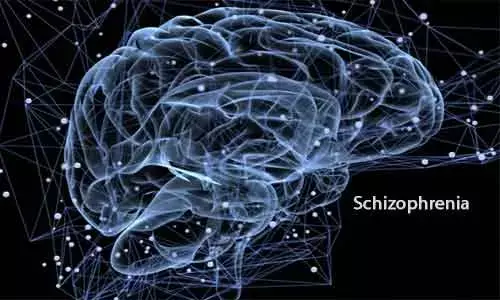- Home
- Medical news & Guidelines
- Anesthesiology
- Cardiology and CTVS
- Critical Care
- Dentistry
- Dermatology
- Diabetes and Endocrinology
- ENT
- Gastroenterology
- Medicine
- Nephrology
- Neurology
- Obstretics-Gynaecology
- Oncology
- Ophthalmology
- Orthopaedics
- Pediatrics-Neonatology
- Psychiatry
- Pulmonology
- Radiology
- Surgery
- Urology
- Laboratory Medicine
- Diet
- Nursing
- Paramedical
- Physiotherapy
- Health news
- Fact Check
- Bone Health Fact Check
- Brain Health Fact Check
- Cancer Related Fact Check
- Child Care Fact Check
- Dental and oral health fact check
- Diabetes and metabolic health fact check
- Diet and Nutrition Fact Check
- Eye and ENT Care Fact Check
- Fitness fact check
- Gut health fact check
- Heart health fact check
- Kidney health fact check
- Medical education fact check
- Men's health fact check
- Respiratory fact check
- Skin and hair care fact check
- Vaccine and Immunization fact check
- Women's health fact check
- AYUSH
- State News
- Andaman and Nicobar Islands
- Andhra Pradesh
- Arunachal Pradesh
- Assam
- Bihar
- Chandigarh
- Chattisgarh
- Dadra and Nagar Haveli
- Daman and Diu
- Delhi
- Goa
- Gujarat
- Haryana
- Himachal Pradesh
- Jammu & Kashmir
- Jharkhand
- Karnataka
- Kerala
- Ladakh
- Lakshadweep
- Madhya Pradesh
- Maharashtra
- Manipur
- Meghalaya
- Mizoram
- Nagaland
- Odisha
- Puducherry
- Punjab
- Rajasthan
- Sikkim
- Tamil Nadu
- Telangana
- Tripura
- Uttar Pradesh
- Uttrakhand
- West Bengal
- Medical Education
- Industry
Anti-psychotic use does not increase mortality in COVID-19, finds JAMA study.

Schizophrenia spectrum disorders are associated with increased mortality in the setting of COVID-19 infection. One speculation for this observation the role of adverse effects of antipsychotic medication, but this has not been proven yet. A recent study published in JAMA Psychiatry by Katlyn Nemani et al. has found no association between antipsychotic use and mortality in this cohort of adults with serious mental illness.
Schizophrenia is a debilitating disorder that takes a great toll of life on the one's affected by it and also the care-givers. Impending on it the burden of COVID-19 has increased the rate of mortality in patients suffering from severe mental illness.
In this retrospective study, adults diagnosed with COVID-19 infection who had a preexisting diagnosis of schizophrenia, schizoaffective disorder, or bipolar disorder, were included. The exposure of interest was antipsychotic use at COVID-19 diagnosis. Patients with antipsychotic discontinuation or nonadherence were assigned to the unexposed group. The primary end point was death within 60 days of COVID-19 diagnosis.
Among a total of 464 patients; 42.2% were treated with antipsychotic medication. 41 patients (8.8%) died. The 60-day case fatality rate among patients with a schizophrenia spectrum disorder was 13.7%, and the case fatality rate among patients with bipolar disorder was 5.7%.
Antipsychotic treatment was not significantly associated with mortality. However, a diagnosis of a schizophrenia spectrum disorder was associated with a near 3-fold increased risk of mortality compared with bipolar disorder.
Study limitations include the inability to validate psychiatric diagnoses and capture deaths that were not documented in the electronic health record. The limited sample size precluded analysis of individual antipsychotic medications, which may differ in their associated effects. Further research is needed to understand what underlies increased mortality risk in this population to address worsening health disparities.
Source: JAMA Psychiatry: Nemani K, Conderino S, Marx J, Thorpe LE, Goff DC. Association Between Antipsychotic Use and COVID-19 Mortality Among People With Serious Mental Illness. JAMA Psychiatry. Published online September 22, 2021. doi:10.1001/jamapsychiatry.2021.2503
M.B.B.S, M.D. Psychiatry
M.B.B.S, M.D. Psychiatry (Teerthanker Mahavir University, U.P.) Currently working as Senior Resident in Department of Psychiatry, Institute of Human Behaviour and Allied Sciences (IHBAS) Dilshad Garden, New Delhi. Actively involved in various research activities of the department.
Dr Kamal Kant Kohli-MBBS, DTCD- a chest specialist with more than 30 years of practice and a flair for writing clinical articles, Dr Kamal Kant Kohli joined Medical Dialogues as a Chief Editor of Medical News. Besides writing articles, as an editor, he proofreads and verifies all the medical content published on Medical Dialogues including those coming from journals, studies,medical conferences,guidelines etc. Email: drkohli@medicaldialogues.in. Contact no. 011-43720751


